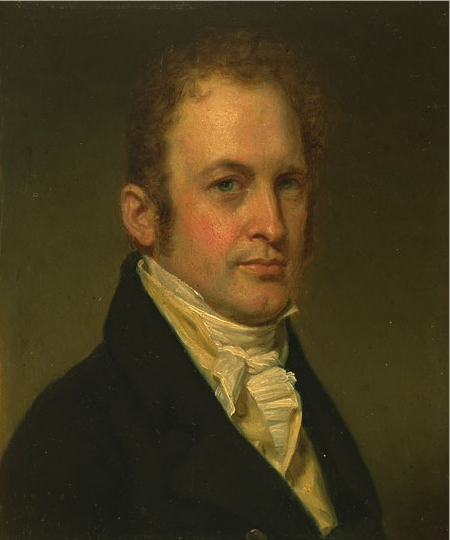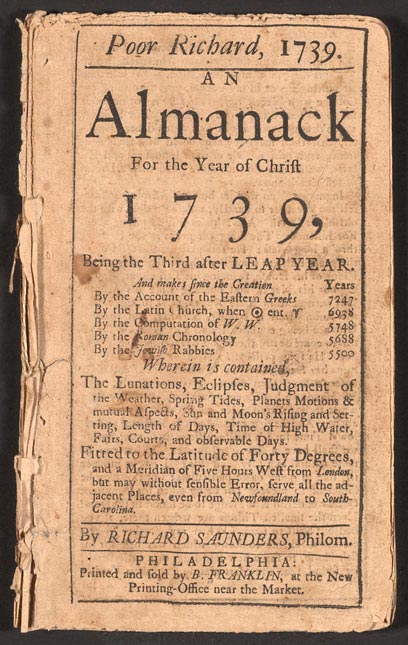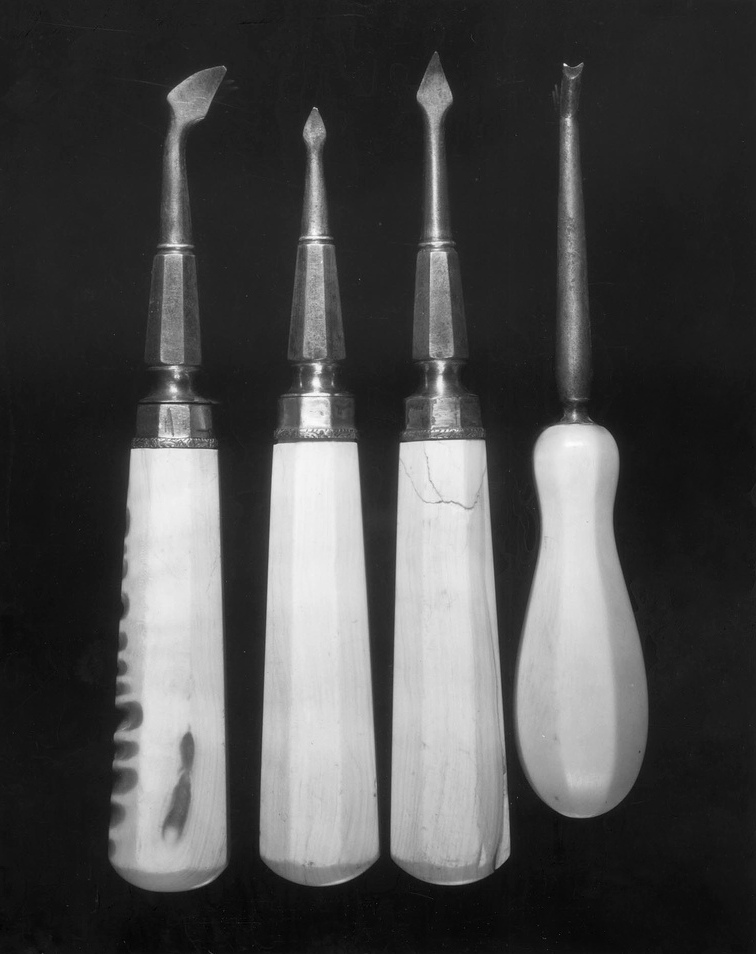|
Isaiah Thomas (publisher)
Isaiah Thomas (January 19, 1749 – April 4, 1831) was an early American printer, newspaper publisher and author. He performed the first public reading of the Declaration of Independence in Worcester, Massachusetts, and reported the first account of the Battles of Lexington and Concord. He was the founder of the American Antiquarian Society. Biography Early life and career Thomas was born in Boston, Massachusetts. He was apprenticed on July 7, 1756, to Zechariah Fowle, a Boston printer, with whom, after working as a printer in Halifax, Portsmouth (New Hampshire) and Charleston (South Carolina), he formed a partnership in 1770. The ''Massachusetts Spy'' The partnership was formed to publish the '' Massachusetts Spy'', and lasted for three months, after which Thomas continued publication alone. For the paper's motto, he chose "Open to all parties, but influenced by none." Initially it came out three times each week, then (under his sole ownership) as a semi-weekly, and be ... [...More Info...] [...Related Items...] OR: [Wikipedia] [Google] [Baidu] |
Ethan Allen Greenwood
Ethan Allen Greenwood (1779–1856) was an American lawyer, portrait painter, and entrepreneurial museum proprietor in Boston, Massachusetts, in the early 19th century. He established the New-England Museum (Boston), New England Museum in 1818. Biography Greenwood was born in Hubbardston, Massachusetts, to Moses Greenwood and Betsy Dunlap, May 27, 1779. He attended school at the Academy at New Salem, and the Leicester Academy. In 1806 he graduated from Dartmouth College. He also studied at United States Military Academy, West Point. Between 1801 and 1825, Greenwood produced many portraits, perhaps as many as 800 works. He utilized the physiognotrace technique. He kept a studio in Boston and associated with other artists, including Gilbert Stuart. He joined the Ancient and Honorable Artillery Company in 1814. He married Mrs. Caroline Carter Warren of Roxbury, Massachusetts, in 1829. After the deaths of his parents he built a large house on their land and he became active in the p ... [...More Info...] [...Related Items...] OR: [Wikipedia] [Google] [Baidu] |
Massachusetts Spy
''The Massachusetts Spy'', later subtitled the '' Worcester Gazette'', (est. 1770) was a newspaper published by Isaiah Thomas in Boston and Worcester, Massachusetts, in the 18th century. The newspaper was heavily political and found itself constantly on the verge of being suppressed by the British colonial government, from the time of its establishment in 1770 to 1776 and through the beginning of the American Revolution. History In 1771–1773, the ''Spy'' featured the essays of several anonymous political commentators who called themselves " Centinel," "Mucius Scaevola" and "Leonidas." They spoke in the same terms about similar issues, kept Patriot polemics on the front page, and supported each other against attacks in pro-government papers. Rhetorical combat was a Patriot tactic that explained the issues of the day and fostered cohesiveness without advocating outright rebellion. The columnists spoke to the colonists as an independent people tied to Britain only by voluntary l ... [...More Info...] [...Related Items...] OR: [Wikipedia] [Google] [Baidu] |
Massachusetts Magazine
The ''Massachusetts Magazine'' was published in Boston, Massachusetts, from 1789 through 1796. Also called the ''Monthly Museum of Knowledge and Rational Entertainment'', it specialized in "poetry, music, biography, history, physics, geography, morality, criticism, philosophy, mathematics, agriculture, architecture, chemistry, novels, tales, romances, translations, news, marriages, deaths, meteorological observations, etc. etc." It was intended as "a kind of thermometer, by which the genius, taste, literature, history, politics, arts, manners, amusements and improvements of the age and nation, may be ascertained." Founded by Isaiah Thomas, the magazine was also published by Ebenezer T. Andrews (1789-1793), Ezra W. Weld (1794), Samuel Hill (1794), William Greenough (1794-1795), Alexander Martin (1795-1796), Benjamin Sweetser (1796), and James Cutler (1796). It was edited by Isaiah Thomas, Thaddeus Mason Harris (1795-1796), and William Bigelow (1796). Contributors included Joseph D ... [...More Info...] [...Related Items...] OR: [Wikipedia] [Google] [Baidu] |
Walpole, New Hampshire
Walpole is a town in Cheshire County, New Hampshire, United States. The population was 3,633 at the 2020 census. The town's central village, where 573 people resided at the 2020 census, is defined as the Walpole census-designated place (CDP) and is east of New Hampshire Route 12. The town also includes the villages of North Walpole and Drewsville. History The town was first granted in 1736 by colonial Governor Jonathan Belcher of Massachusetts as "Number 3", third in a line of Connecticut River fort towns. It was settled as early as 1736, and called "Great Falls" or "Lunenburg". Colonel Benjamin Bellows, for whom Bellows Falls, Vermont, is named, built a large fort here for defense against Native attack. After the border between Massachusetts and New Hampshire was fixed (with Number 3 on the New Hampshire side of the line), the town was regranted by Governor Benning Wentworth as "Bellowstown", after its founder. It was incorporated in 1756. The grant was renewed in ... [...More Info...] [...Related Items...] OR: [Wikipedia] [Google] [Baidu] |
Poor Richard's Almanack
''Poor Richard's Almanack'' (sometimes ''Almanac'') was a yearly almanac published by Benjamin Franklin, who adopted the pseudonym of "Poor Richard" or "Richard Saunders" for this purpose. The publication appeared continually from 1732 to 1758. It sold exceptionally well for a pamphlet published in the Thirteen Colonies; print runs reached 10,000 per year. Franklin, the American inventor, statesman, and accomplished publisher and printer, achieved success with ''Poor Richard's Almanack''. Almanacks were very popular books in colonial America, offering a mixture of seasonal weather forecasts, practical household hints, puzzles, and other amusements. ''Poor Richard's Almanack'' was also popular for its extensive use of wordplay, and some of the witty phrases coined in the work survive in the contemporary American vernacular. History On December 28, 1732, Benjamin Franklin announced in '' The Pennsylvania Gazette'' that he had just printed and published the first edition of ... [...More Info...] [...Related Items...] OR: [Wikipedia] [Google] [Baidu] |
New England Almanac
New or NEW may refer to: Music * New, singer of K-pop group The Boyz * ''New'' (album), by Paul McCartney, 2013 ** "New" (Paul McCartney song), 2013 * ''New'' (EP), by Regurgitator, 1995 * "New" (Daya song), 2017 * "New" (No Doubt song), 1999 * "new", a song by Loona from the 2017 single album '' Yves'' * "The New", a song by Interpol from the 2002 album ''Turn On the Bright Lights'' Transportation * Lakefront Airport, New Orleans, U.S., IATA airport code NEW * Newcraighall railway station, Scotland, station code NEW Other uses * ''New'' (film), a 2004 Tamil movie * New (surname), an English family name * NEW (TV station), in Australia * new and delete (C++), in the computer programming language * Net economic welfare, a proposed macroeconomic indicator * Net explosive weight, also known as net explosive quantity * Network of enlightened Women, an American organization * Newar language, ISO 639-2/3 language code new * Next Entertainment World, a South Korean media company ... [...More Info...] [...Related Items...] OR: [Wikipedia] [Google] [Baidu] |
Coat Of Arms Of Isaiah Thomas
A coat is typically an outer garment for the upper body, worn by any gender for warmth or fashion. Coats typically have long sleeves and are open down the front, and closing by means of buttons, zippers, hook-and-loop fasteners (AKA velcro), toggles, a belt, or a combination of some of these. Other possible features include collars, shoulder straps, and hoods. Etymology ''Coat'' is one of the earliest clothing category words in English, attested as far back as the early Middle Ages. (''See also'' Clothing terminology.) The Oxford English Dictionary traces ''coat'' in its modern meaning to , when it was written ''cote'' or ''cotte''. The word coat stems from Old French and then -4; we might wonder whether there's a point at which it's appropriate to talk of the beginnings of French, that is, when it wa ... and then Latin ''cottus.'' It originates from the Proto-Indo-European language">Proto-Indo-European word for woolen clothes. An early use of ''coat'' in English is Mail ( ... [...More Info...] [...Related Items...] OR: [Wikipedia] [Google] [Baidu] |
Douglas Crawford McMurtrie
Douglas Crawford McMurtrie (July 20, 1888 – September 29, 1944) was an American typeface designer, graphic designer, historian, author and bibliographer of printing. Early career McMurtrie was born in Belmar, New Jersey and attended Massachusetts Institute of Technology. After leaving school without a degree, he worked as a newspaper reporter, statistician, free-lance designer, and printing broker. After several years, his design work came to the attention of Ingalls Kimball, who appointed McMurtrie general manager of the ''Cheltenham Press.'' He subsequently served as printing manager of the '' Columbia University Printing Office,'' the ''Arbor Press,'' and '' Condé Nast Press''. Involvement with design and typography During this period McMurtrie designed two type faces and helped design the format of the '' New Yorker'' magazine. He was instrumental in forming the Continental Type Founders Association, which imported types from Europe, serving as the company’s f ... [...More Info...] [...Related Items...] OR: [Wikipedia] [Google] [Baidu] |
Federalist Party
The Federalist Party was a conservativeMultiple sources: * * * * * * * * and nationalist American political party and the first political party in the United States. It dominated the national government under Alexander Hamilton from 1789 to 1801. The party was defeated by the Democratic-Republican Party in 1800, and it became a minority party while keeping its stronghold in New England. It made a brief resurgence by opposing the War of 1812, then collapsed with its last presidential candidate in 1816 United States presidential election, 1816. Remnants lasted for a few years afterwards. The party appealed to businesses who favored banks, national over state government, and manufacturing an army and navy. In world affairs, the party preferred Kingdom of Great Britain, Great Britain and strongly opposed involvement in the French Revolutionary and Napoleonic Wars. The party favored centralization, Early federalism in the United States, federalism, modernization, industriali ... [...More Info...] [...Related Items...] OR: [Wikipedia] [Google] [Baidu] |
George Washington
George Washington (, 1799) was a Founding Fathers of the United States, Founding Father and the first president of the United States, serving from 1789 to 1797. As commander of the Continental Army, Washington led Patriot (American Revolution), Patriot forces to victory in the American Revolutionary War against the British Empire. He is commonly known as the Father of the Nation for his role in bringing about American independence. Born in the Colony of Virginia, Washington became the commander of the Virginia Regiment during the French and Indian War (1754–1763). He was later elected to the Virginia House of Burgesses, and opposed the perceived oppression of the American colonists by the British Crown. When the American Revolutionary War against the British began in 1775, Washington was appointed Commanding General of the United States Army, commander-in-chief of the Continental Army. He directed a poorly organized and equipped force against disciplined British troops. Wa ... [...More Info...] [...Related Items...] OR: [Wikipedia] [Google] [Baidu] |
Battle Of Lexington
The Battles of Lexington and Concord on April 19, 1775 were the first major military actions of the American Revolutionary War between the Kingdom of Great Britain and Patriot (American Revolution), Patriot militias from America's Thirteen Colonies. Day-long running battles were fought in Middlesex County, Massachusetts, Middlesex County in the Province of Massachusetts Bay, within the towns of Lexington, Massachusetts, Lexington, Concord, Massachusetts, Concord, Lincoln, Massachusetts, Lincoln, Arlington, Massachusetts, Menotomy (present-day Arlington), and Cambridge, Massachusetts, Cambridge. The American victory resulted in an outpouring of support for the anti-British cause. In the summer of 1774, Colonial leaders in Suffolk County, Massachusetts adopted the Suffolk Resolves in resistance to the Massachusetts Government Act, alterations made to the Massachusetts colonial government by the British parliament in the Intolerable Acts following the Boston Tea Party. The leade ... [...More Info...] [...Related Items...] OR: [Wikipedia] [Google] [Baidu] |
Paul Revere
Paul Revere (; December 21, 1734 O.S. (January 1, 1735 N.S.)May 10, 1818) was an American silversmith, military officer and industrialist who played a major role during the opening months of the American Revolutionary War in Massachusetts, engaging in a midnight ride in 1775 to alert nearby minutemen of the approach of British troops prior to the battles of Lexington and Concord. Born in the North End of Boston, Revere eventually became a prosperous and prominent Bostonian, deriving his income from silversmithing and engraving. During the American Revolution, he was a strong supporter of the Patriot cause and joined the Sons of Liberty. His midnight ride transformed him into an American folk hero, being dramatized in Henry Wadsworth Longfellow's 1861 poem, " Paul Revere's Ride". He also helped to organize an intelligence and alarm system to keep watch on the movements of British forces. Revere later served as an officer in the Massachusetts Militia, though his serv ... [...More Info...] [...Related Items...] OR: [Wikipedia] [Google] [Baidu] |





